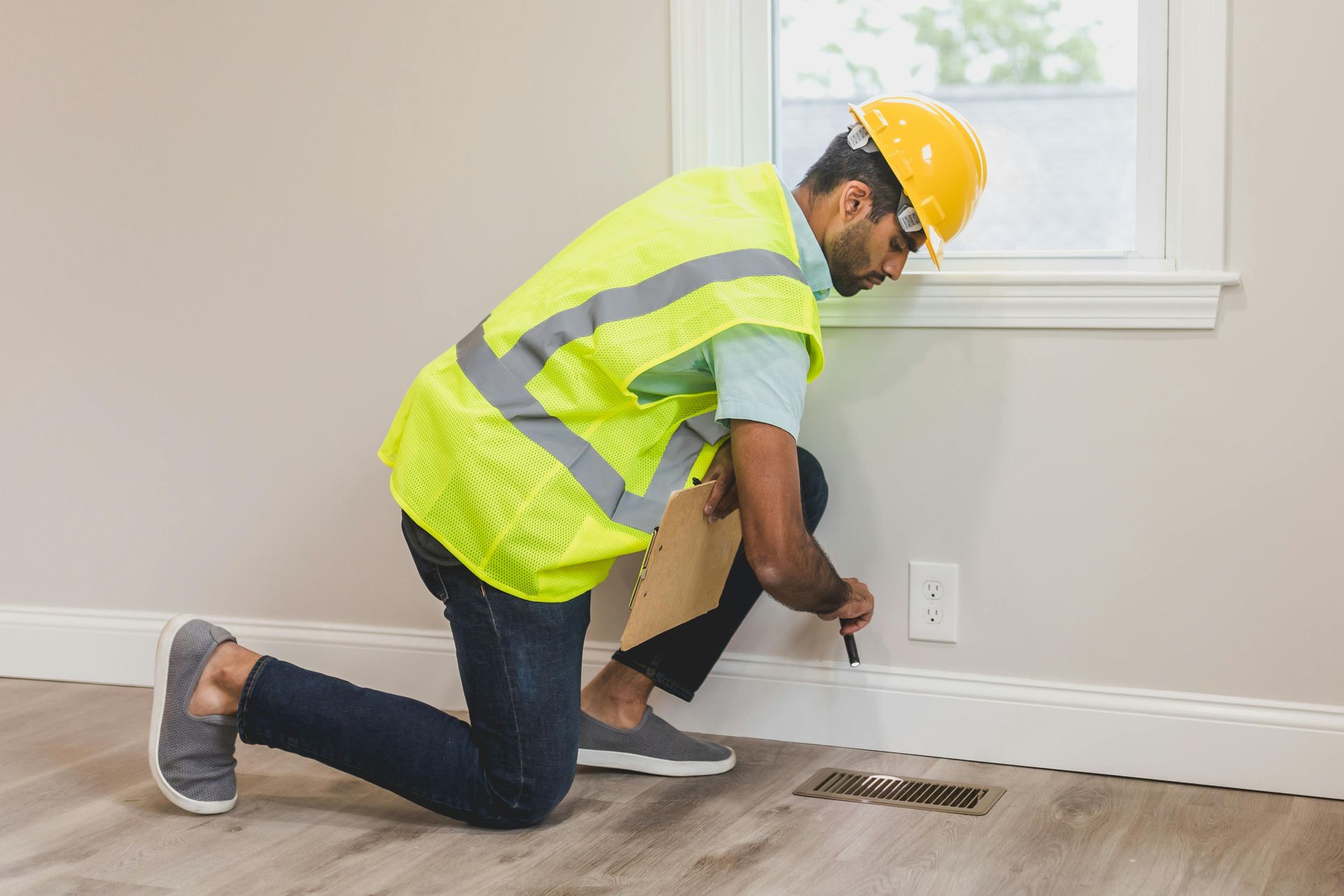Breathing Easy - The Role of Indoor Air Quality Testing
Did you know that according to the EPA we spend 90% of our time indoors? Indoor air quality (IAQ) is a critical yet often overlooked aspect of our health and wellbeing. From pollutants to allergens, the air we breathe indoors can have a significant impact on our health. That's why it's essential to understand the importance of indoor air quality testing and take steps to ensure the air we breathe is clean and safe.
Understanding Indoor Air Quality
Indoor air quality refers to the condition of the air within buildings, especially as it relates to the health and comfort of those in the space. While we may not see it, indoor air can be filled with various pollutants and contaminants, including:
- Volatile Organic Compounds (VOCs) - These are chemicals emitted as gasses from certain solids or liquids, including household products such as paints, cleaning supplies, and building materials. Long term exposure to VOCs can lead to respiratory issues, headaches, and even cancer.
- Allergens - Dust mites, pet dander, and pollen are common indoor allergens that can trigger allergic reactions and make asthma symptoms worse.
- Mold Spores - While mold spores are always present, they need one thing to grow - moisture. Mold growth can damage building material and furniture, as well as cause health problems.
- Radon - A naturally occurring radioactive gas, radon can seep into homes through cracks in the foundation and accumulate to dangerous levels. Prolonged exposure to radon increases the risk of lung cancer.
- Particulate Matter - Fine particles suspended in the air, such as dust, soot, and smoke, can penetrate deep into the lungs and cause respiratory problems, particularly in people with preexisting conditions.
The Importance of Indoor Air Quality Testing
Given the potential health risks associated with poor indoor air quality, testing is crucial for several reasons:
- Identifying Hidden Threats - Indoor air quality testing can detect harmful pollutants and contaminants that may be present in your home but are invisible to the naked eye. By identifying these hidden threats, you can take targeted measures to mitigate risks and protect your health.
- Promoting Health and Wellbeing - Clean indoor air is essential for maintaining optimal health and wellbeing. Poor indoor air quality has been linked to a range of health issues, including respiratory problems, allergies, fatigue, and headaches. By testing your indoor air quality, you can create a healthier living environment for you and your family.
- Ensuring Safety - Some indoor air pollutants, such as radon, pose serious safety hazards. Radon is the second leading cause of lung cancer after smoking and is responsible for thousands of deaths each year. Regular testing is essential for detecting elevated radon levels and implementing remediation measures to reduce exposure.
- Improving Comfort - In addition to health concerns, poor indoor air quality can also affect comfort levels within the home. Excessive humidity, foul odors, and stuffy air can make living spaces feel uncomfortable and unpleasant. By addressing indoor air quality issues, you can create a more comfortable and inviting home environment.
Taking Action
If you're concerned about the quality of the air in your home, there are several steps you can take to improve it:
- Conduct Regular Testing - Schedule professional indoor air quality testing to assess pollution levels and identify potential threats. Testing should cover a range of pollutants, including VOCs, allergens, radon, particulate matter, and humidity to prevent mold growth.
- Address Ventilation Issues - Proper ventilation is crucial for maintaining good indoor air quality. Ensure that your home is adequately ventilated to allow for the circulation of fresh air and the removal of indoor pollutants. Consider installing exhaust fans in kitchens and bathrooms and opening windows regularly to let in fresh air.
- Use Air Purifiers - Air purifiers can help remove airborne pollutants and improve indoor air quality. Look for purifiers equipped with HEPA filters, which are capable of capturing fine particles and allergens.
- Eliminate Sources of Pollution - Identify and eliminate sources of indoor air pollution, such as smoking, excess moisture, and chemical-based household products. Opt for eco-friendly cleaning supplies and low VOC building materials to minimize emissions.
Indoor air quality testing is not just a matter of convenience - it's a critical step in safeguarding your health and wellbeing. By understanding the importance of indoor air quality and taking proactive measures to test and improve it, you can create a healthier, safer, and more comfortable home environment for you and your loved ones. Don't wait until health problems arise, prioritize indoor air quality testing today and breathe easier tomorrow by scheduling your indoor air quality testing with Wild Blue Home Inspections!
Share this blog!



